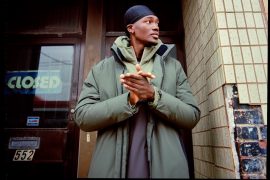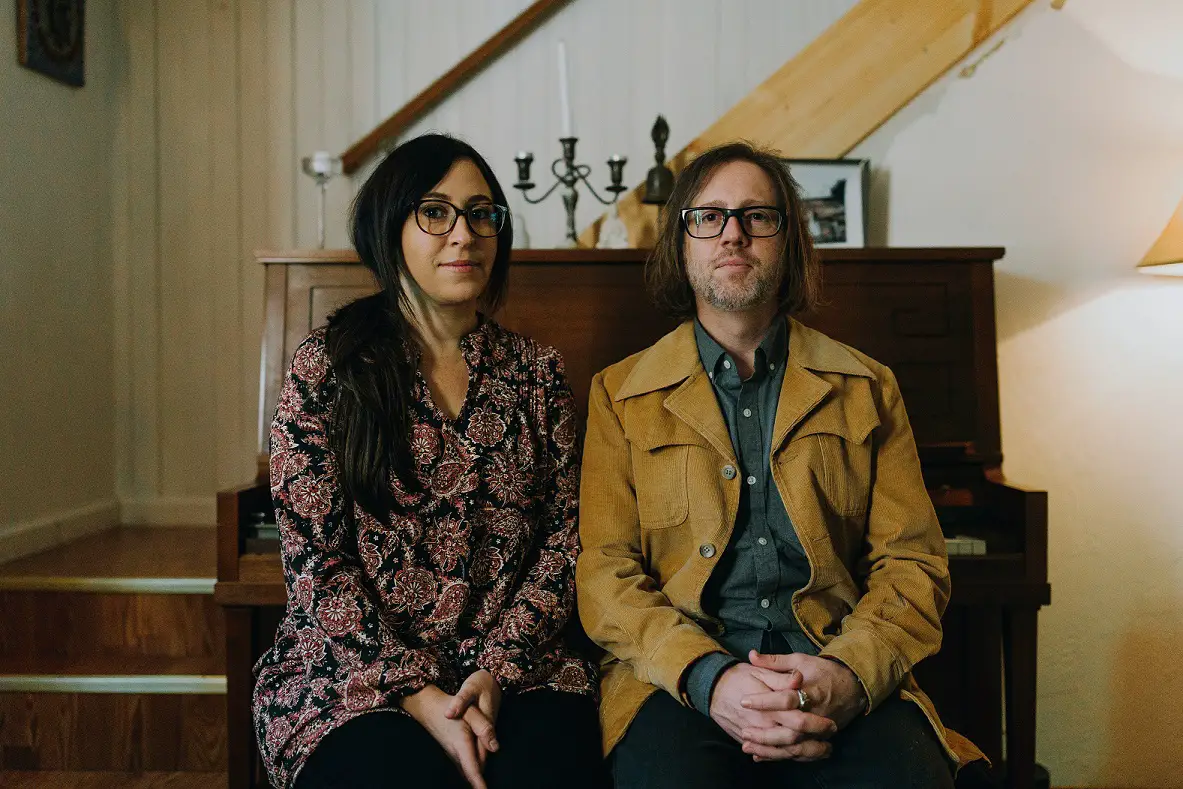Refreshing and classic with its pulls on past greatness, English singer/songwriter Declan McKenna’s third studio album ‘What Happened To The Beach?’ is a captivating and experimental blend that is rerouting the modern-day music industry to the strengths of its past.
Stream: ‘What Happened to the Beach?’ – Declan McKenna
Even if at times that’s offensive to some people or doesn’t quite work for some people, I think the music landscape is better with real, genuine variety and real, genuine expression. It’s what it’s all about.
Refreshing and classic with its pulls on past greatness, Declan McKenna’s third studio album, What Happened to the Beach? is a captivating and experimental blend that is rerouting the modern-day music industry to the strengths of its past.
Authenticity is, of course, one of the most important things when it comes to creativity, and that is not lost on Declan McKenna. From the comedic and wacky landscape of The Mighty Boosh to Paul and Linda McCartney’s Ram, the English singer/songwriter pulled on a range of inspirations and let himself be free to follow his instincts in a way that he hadn’t fully tapped into with his previous projects.
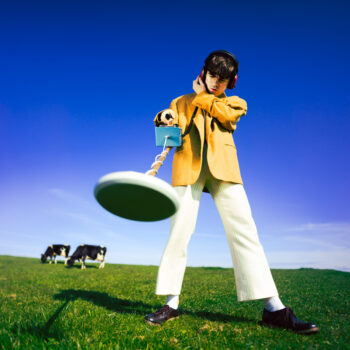
While he’s always been original in his work and skewed away from the traditional pop sound, What Happened To The Beach? (released February 9 via Tomplicated Records / Sony Music UK) is an obvious stray away from anything McKenna has ever done, but he is glad to make the diversion and create something unique and new.
“The thing I love about this album is that it’s a real journey and there’s a real variety going on,” he tells Atwood Magazine. “As scary as it is to do something different, I think people who really appreciate what I do will appreciate that I’m not trying to contain my creativity and make these sort of really polished pop records every time I do it.”
It’s easy to understand that above all else, what McKenna values in his craft is staying rooted to personal intentions with the music and not bending to outside forces that may beg for the opposite. It’s a sentiment that reigns with a weight unfailingly necessary to keeping the spirit of music alive.
“I think it’s important, I think it’s almost part of what my sort of sentiment with this album is. I want more artists not to bow to their label and their label’s requests – that they basically write the same songs that they wrote on the last album that did well. Because it doesn’t work like that. Fans don’t work like that. You can smell it from a mile away when a band is just regurgitating, and yeah it’s more of a risk, but it’s much greater a reward when you give people a hit that they can’t get anywhere else.”
McKenna hopes to provoke other artists follow suit and recall the importance of creating to create, no matter how it may be perceived by audiences and critics. “It’s the way music should be,” he says. “It’s a free landscape and sometimes it feels like great, great artists are left a little bit scared.”
“The more artists are free to just express themselves and not be working with the audience in mind or working with the final thing in mind and just be able to be free to explore and find the things that really represent you in a truly unique way, the better. Even if at times that’s offensive to some people or doesn’t quite work for some people… I think the music landscape is better with real, genuine variety and real, genuine expression. It’s what it’s all about.”
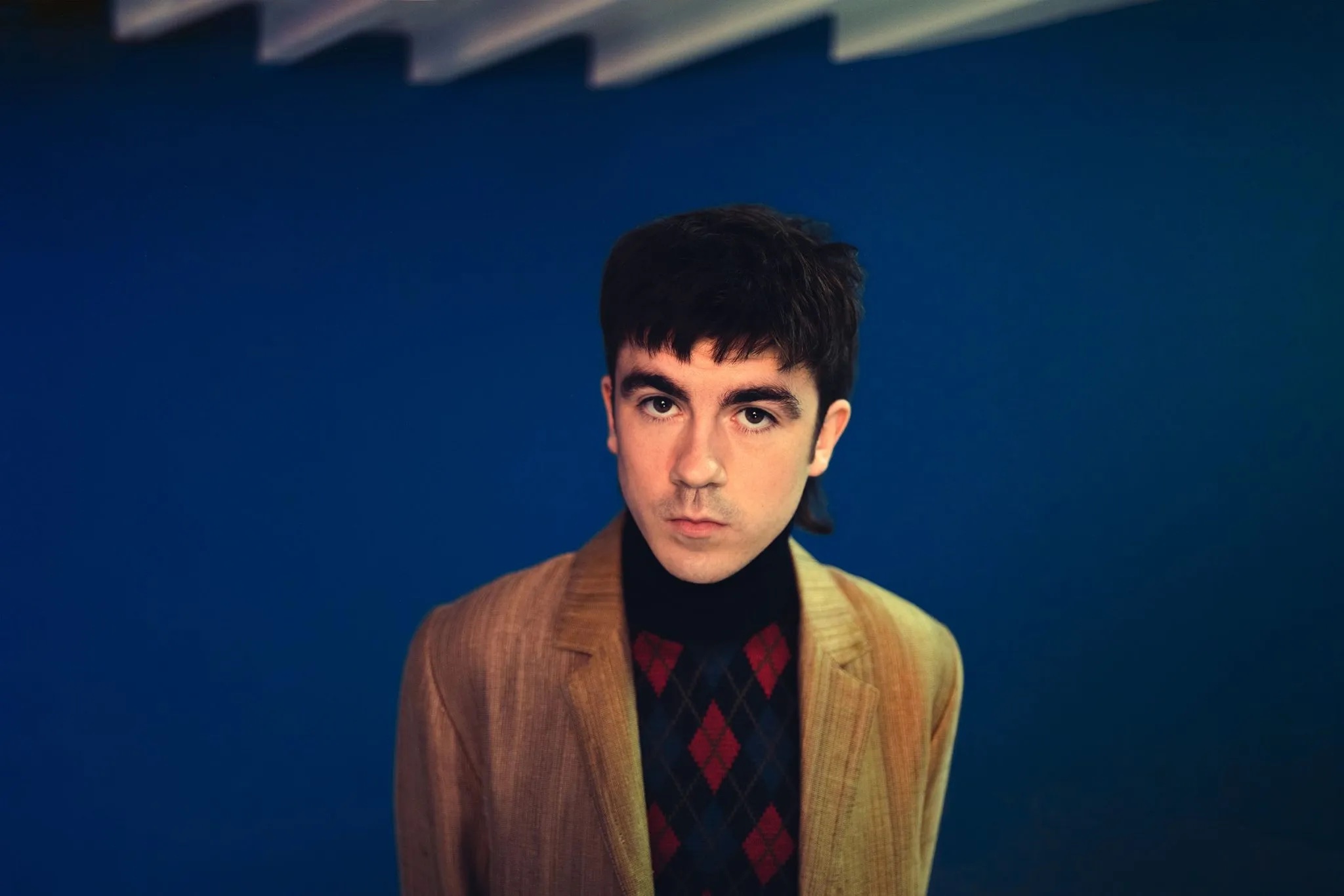
As scary as it is to do something different, I think people who really appreciate what I do will appreciate that I’m not trying to contain my creativity and make these sort of really polished pop records every time I do it.
What Happened to the Beach? is Declan McKenna’s third studio album, arriving three and a half years after his last LP, 2020’s critically and universally acclaimed Zeros.
“I kind of stumbled into it,” he says of his new record. “The interesting thing is, it’s not like all these super direct stories of my life, but more it’s just allowing myself to spitball and see where things land and come out with things in the moment.”
This time around, McKenna’s creative process was one of unfiltered self-expression: Letting himself express whatever arrived in intimate moments where his guard wasn’t up, and he didn’t necessarily have an idea of where the idea may take him. He allowed a “stream of consciousness” to take the lead and guide the project to wherever it wanted to go. He confesses that by going to the studio with no clear thought of which direction the project is going to go in, “You get to be yourself more, you just kind of give something that is more personal because you’re not trying to filter yourself.”
With this almost freeform, lack of direction, there still has to be some sort of creative process involved in the making of an album. McKenna mostly worked in an intimate environment at home, where some songs began with lyrics and others with “weird guitar sounds.” After collecting about thirty to forty ideas of songs that he liked, he took a trip to Los Angeles and began piecing together what would become What Happened to the Beach?

McKenna wanted to see how LA would impact his sound, because he hadn’t fully immersed himself in the West Coast culture and sound before – however, he says, he didn’t really “wind up doing typical LA stuff.” He attributes this to the fact that once he started working with producer Gianluca Buccellati, “It just felt like we were making an album together, so it wasn’t like running around the town, working with every producer. It was more just being in this new sunny environment and getting into it.”
“Really the process remained the same,” he admits, rounding it out to be “very instantaneous” and “very relaxed.” Overall, a very “refreshing” experience for him.
With such a lax and free-flowing plan of attack surrounding the development of this album, the question of knowing when a song is done has to be asked. McKenna reminisces on how, up until the very end, he and his team kept tinkering with the tracks, and while some remained true to their demos, others were whacked around every which way and changed constantly.
Toward the end of his time making the album, he hired out a studio, “and brought a load of friends in one evening and bought a load of beers and everything and just got everyone around and played a bunch of songs as we had them and had almost every instrument in the studio ready to roll and we were just constantly recording, playing the songs out. People could just play whatever they felt like playing over the top.”
“So we had even more, additional layers to work with and then had to peel that back after,” he laughs. “It was cool!”
You can smell it from a mile away when a band is just regurgitating, and yeah it’s more of a risk, but it’s much greater a reward when you give people a hit that they can’t get anywhere else.
Moving on to spread some light on the making of specific tracks, McKenna opened up about who and what his major influences were. Of course, The Beatles make the top of the list. He cites Paul and Linda McCartney’s album Ram as being not only one of his favorite McCartney projects, but also a sort of permission slip to do whatever he wanted on his own record.
“I just think that Paul was doing something that is actually now quite common in music, like where someone is making music bit by bit, one by one and in quite an intimate way,” McKenna says, elaborating on how at the time, McCartney’s method was viewed as weird and uncool to many people. “I feel like now you realize how much personality is in that record because it’s all Paul, and I think that was kind of the idea of this one as well.”
“It’s not necessarily the most intricate ideas, but it sort of has your sort of personality in it, and it has your sort of stamp on every layer,” he says of his own record. “That’s kind of the beauty of working on an album in this way, and why I think when you are working, and if you’re not recording with a band, you have to be careful to not make everything too perfect, because it just sounds sterile – and that’s why Ram is an inspiration to this record, because I just wanted to have this wonkiness and not over-filtered stuff that is a little out of its time, but feels good.”
It all rounds out to the idea of originality and accuracy to the self in art; in his words, “It’s all just personality.”

As for other influences not just on this record, but regarding legacy and performance, McKenna touches on David Bowie and continues his Beatles praise parade – and how, while they paved their own paths, there’s something about the authenticity of doing what feels right that guided the creation of their art. From characters like the Thin White Duke or Ziggy Stardust and albums like Rubber Soul or Revolver, that notion holds up.
To put it simply, what is so great about music is that it’s meant to be interesting and ever-changing.
When we look back at all those who have been deemed “one of the greats,” they’re hailed for what they are because their music stands the test of time, which is just a battering to the personality that’s put in music. If that personality isn’t woven throughout the work, it’s hard to say whether the work will be recognized as classic in forty or fifty years. Needless to say, while the work of The Beatles is close to impossible to match, the threads of influence intertwined in What Happened to the Beach? give Declan McKenna’s record more of a stable ground to stand on as the future of music continues to bump and roll around.
With that, however, when considering legacy and all that follows success, particularly in art, there is the matter of considering how your music will impact the world. This is a lofty declaration, but music does have an impact, and on that note, McKenna muses about his occasional tendency to broadcast a political message in his work – and why it’s important to do so now and then. While backtracking from the album momentarily he says, “Being a musician, part of it is knowing your place.”
Self-awareness is paramount.
“Knowing how your music will actually land, or at least having an awareness of how your music will slot into life, rather than it being…” he ponders, pauses, and then continues. “I have one or two moments where it’s super direct – ‘Listen to Your Friends’ and ‘British Bombs,’ where I’ve just really said the thing very directly to an extent within the song.”
He caveats this with the brief mention of how there’s always a tradeoff between expressing a message very outwardly while also leaving room to consider the musicality of the message. “People will actually live with the message as opposed to it slapping you in the face so much that you can’t really listen to it.”
When it comes to politics and poetry, or music if you prefer, McKenna divulges, “I think what I’ve figured out over time is that when I wasn’t trying so hard, like there’s a lot of stuff where I’ve tried to write a political message and it’s just gone nowhere because I think I’m trying too hard and making something that’s not as simple. The important thing when you’re trying to put a message in the music, is that people actually live with it and want to listen to it.”
Transitioning to lighter topics, and returning to the new album, he jokes, “I find it really interesting when people are nice about my lyrics because I sometimes think they’re kind of stupid or just very simple ideas, but I think that’s how you get the point across to an extent.”
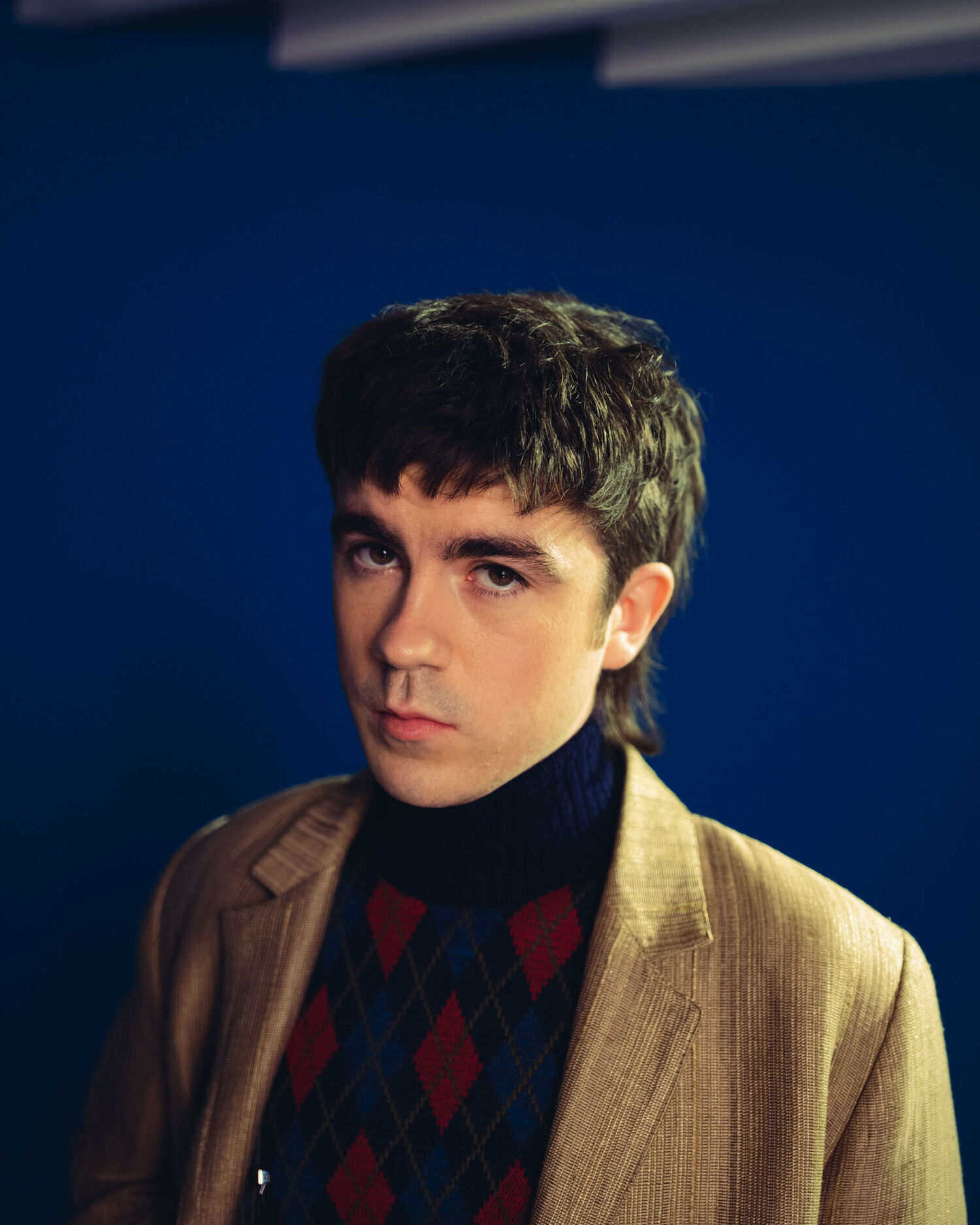
Speaking of lyrics, McKenna touches on a select group of tracks, beginning near the album’s end with the elusive and enchanting “It’s an Act.” Its roots lie in a hypnotic piano riff that sat in the ideas bin for a while; he reflects on how the song was birthed from the pandemic, which was indeed “a dark time,” but nevertheless allowed for a lovely little tune about self-discovery to be conceived.
“I was trying to really give a good account of myself, and not really having much to give. Trying to really emphasize how much of a performance life can be, and obviously, it reigns true with being an artist, but I think the really resonant thing about the song is that in life you can kind of put on a show for people and not be true to yourself.”
He jumps back to his thoughts on creativity, noting, “When you actually let go of filtering yourself and just be yourself, and stop thinking about what it is to be yourself or what you want to be perceived as, that’s when you’re actually probably happier and just enjoying the moment. A lot of the time, for whatever reason, it’s just not like that.”
Remaining in shady bits of the album, we shift from the quite sad lyricism of “It’s an Act” to discussing the “hellish landscape” of “Breath of Light.” McKenna refers back to a time after a show he did pre-pandemic, where he and his friend (and fellow musician) Jake Passmore were hungover and just hanging out “in a dreamy state and messing around on some grove,” to which McKenna credits Passmore with much of the overall feel of the song. “It’s very Jake, the whole [insert a mimic of the breathy introduction] just sort of weird Mighty Boosh, hellish landscape.”
“It wound up being a song from hell.”
“Breath of Light” ended up being a defining track of the album. McKenna says with a laugh, “It summed up the ethos of the album before I really knew what the album would become, really – just this spontaneous moment. A few years ago, I wouldn’t have dreamed of putting it on a record, but this is part of what I do and people need to hear it.”
“I’m really appreciative that there’s a lot of people who are open to me not just doing the same shit.”
It’s easy to say that the future of music is safe as long as artists like Declan McKenna, who give themselves the permission to create for the sake of creativity and follow what passion calls for, are in the business.
— —
:: stream/purchase WHAT HAPPENED TO THE BEACH? here ::
:: connect with Declan McKenna here ::
— — — —

Connect to Declan McKenna on
Facebook, Twitter, TikTok, Instagram
Discover new music on Atwood Magazine
© Henry Pearce
:: Stream Declan McKenna ::

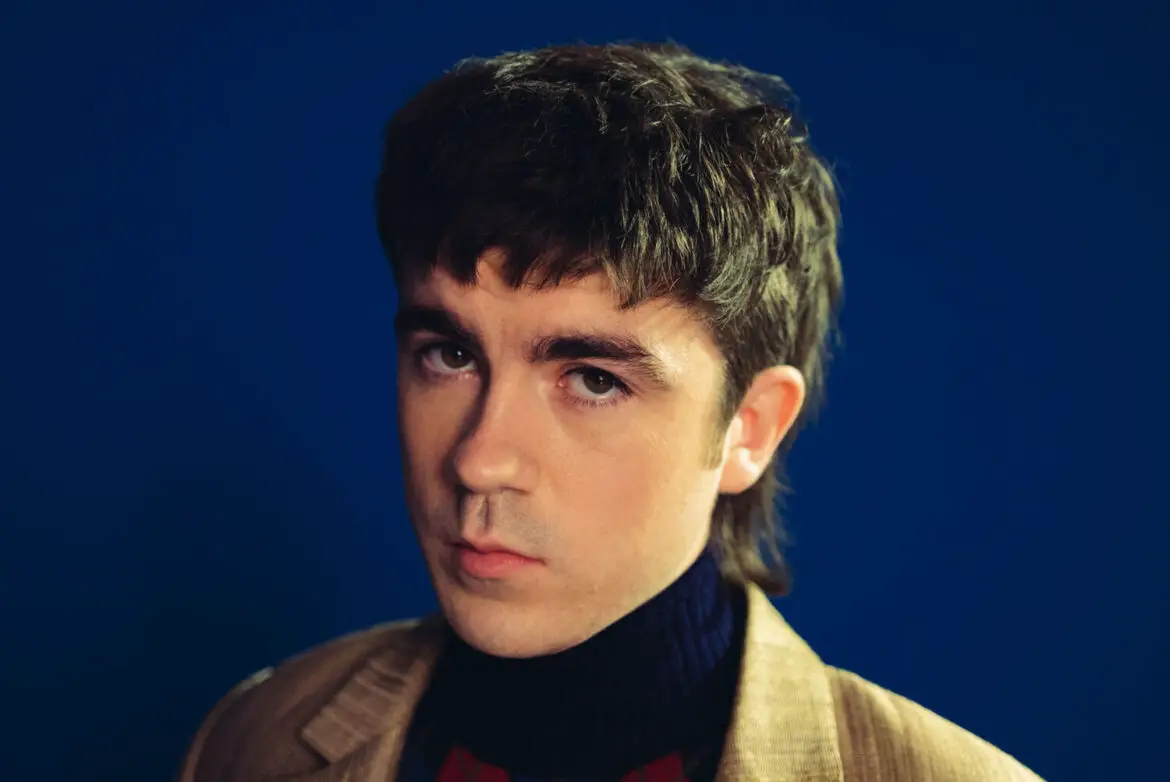
 © Henry Pearce
© Henry Pearce
